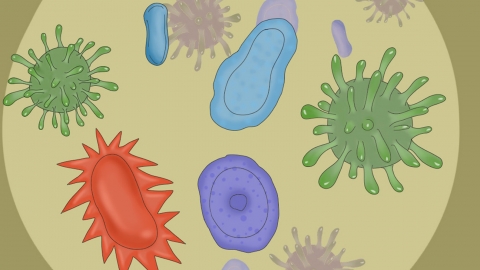What is Human Herpesvirus 4?
Under normal circumstances, Human Herpesvirus 4 usually refers to the Epstein-Barr virus, a common type of herpes virus that can cause various diseases and primarily spreads through saliva. Detailed analysis is as follows:

Human Herpesvirus 4 typically refers to Epstein-Barr virus, a common type of herpes virus among the population, and most adults have been infected with this virus. After infection, it may cause various diseases—for example, infectious mononucleosis, which commonly presents as fever, sore throat, swollen lymph nodes, and fatigue. Some patients may also experience enlargement of the liver and spleen. Long-term latent infection might be associated with certain malignant diseases, although this is relatively rare. The virus mainly spreads through saliva; for instance, sharing toothbrushes, drinking cups, or eating utensils with an infected person, or kissing or sharing food with them, may lead to transmission. Additionally, other bodily fluids such as blood and semen may also serve as transmission routes, though these are less common than saliva transmission.
It is important in daily life to avoid sharing personal hygiene items and eating utensils with infected individuals, reduce close contact behaviors such as sharing meals or kissing, and lower the risk of infection. After infection, adequate rest should be ensured, excessive fatigue avoided, and a bland, easily digestible diet consumed to reduce physical strain. If symptoms such as persistent fever, significant sore throat, or swollen lymph nodes occur, timely medical consultation is necessary for a clear diagnosis, and treatment should be conducted according to medical advice to avoid delays in treatment. People with weakened immune systems should pay particular attention to protective measures, regularly monitor their health status, and enhance their own immunity.












